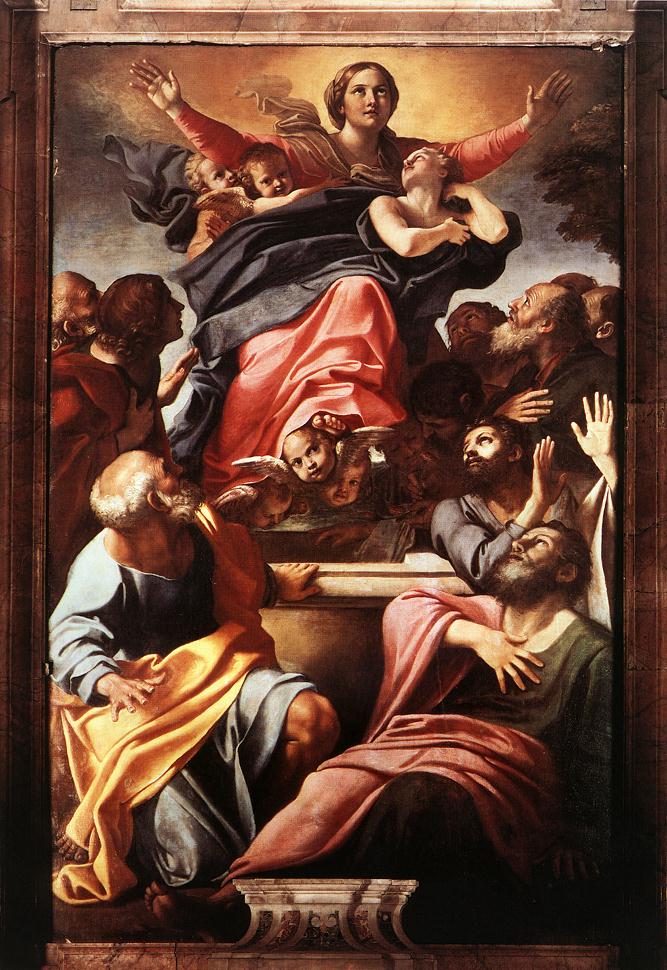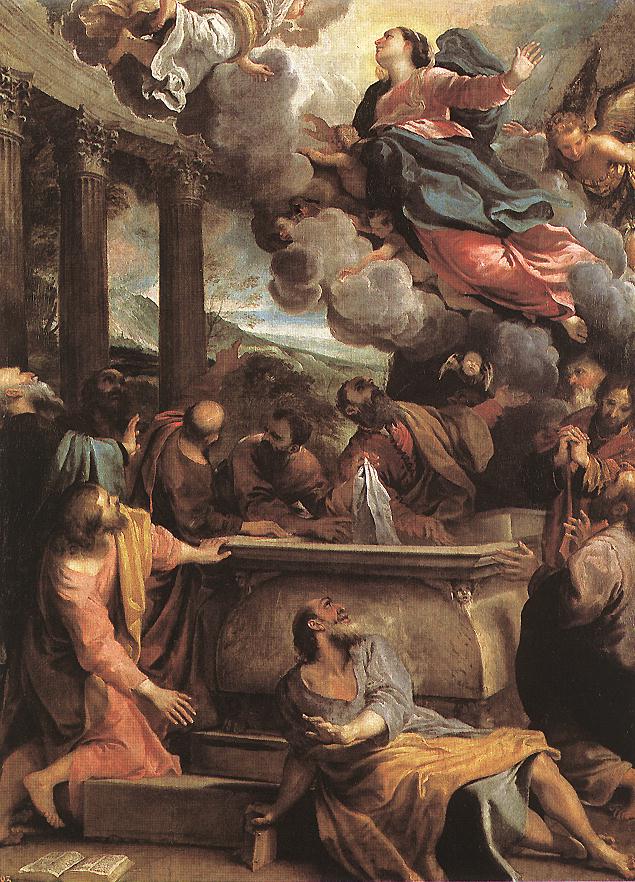Wednesday, August 18, 2010
Feeling with the Church - Pope John Paul II
of his identity'.
To possess and live the sense of the Church means to know and love, the Church and sentire cum Ecclesia; to know and love the Church who is lin Christ, in the nature of a sacrament - a sign and instrument of communion with God and of unity with the whole human race' (Lumen Gentium I ); who is the sheepfold, whose one and necessary door and whose Good Shepherd is Christ (J0hn 10:1-10); who is the estate, the field of God, where Christ is the true vine making us who are its branches fruitful (John 15:1-5); who is the Body of Christ, in whom Christ's life is poured forth into us believers by the sacraments of the Faith; who is the New People of God, a people who has 'as its head Christ ". and its state is that of the dignity and freedom of the sons of God, in whose heart the Holy Spirit dwells as in a temple; its law, the new commandment to love as Christ loved US; its destiny, the kingdom of God' (Lumen gentium 9).
Of this Church we are members and children; by this Church we have been begotten to supernatural life in Baptism, which has grafted us into Christ. We should therefore love this Church as our Mother , because 'they cannot have God for Father who do not have the Church for Mother' (St Cyprian, De Catholicae Ecclesiae unitate 6; CSEL 3,1,214). The Church is our Mother and Teacher: we ought filially and docilely to listen to what she says to us, to what she passes on to us and teaches us by means of the magisterium of the Successor of Peter, the perpetual and visible principle and foundation-stone of the unity of the Faith and of ecclesial communion, and of the Bishops who by divine institution have succeeded to the place of the Apostles as pastors of the Church. Whoever listens to them, listens to Christ whoever despises them, despises Christ and the One who sent him (Luke 10:6). Genuine Christians are always in tune with the magisterium of the Church; they accept it and, with God's help, put it into practice in the manifold circumstances of daily life. This is the meaning of sentire cum Ecclesia.
Monday, August 16, 2010
Loving the Church - Pope John Paul II
The Church, handing on the message of Revelation with which she has been entrusted, is the place of God's living presence in the human world, and the place where redemption takes place. The Church, as the Second Vatican Council states, is 'in Christ, in the nature of a sacrament - a sign and instrument, that is, of communion with God and of unity with the human race'. We should reconsider this essential statement in the Constitution Lumen gentium (n. 1) so that our mission may derive full benefit from it.
The face and function of the Church cannot be understoodunless we go right to the depths of her nature: in conferring baptism on us, she is our Mother, she gives us life in Christ, she makes us holy and transmits the gift of the Holy Spirit to us.
In the Eucharist, a thank-offering to the Father and a bond of fellowship among us, we are privileged to share in Christ's redemptive sacrifice. Outside of this sacramental dimension, we cannot but have a superficial and totally perverted vision of the Church.
It seems to me that today there is a need to rekindle a love in Catholics for the Church which they form and which they should not view from the outside. The Church is no mere association it is an authentic fellowship. To illustrate this concept, I want to quote St Irenaeus, the second-century Bishop of Lyons: 'The Father is above all, and he is the head of Christ, but the Word is through all things and he is himself the head of the Church; whilst the Spirit is in us all; and he is the living water which the Lord gave to those who believe in him and love him and know
that there is one sole God and Father' (Adversus haereses, V 18,2). Aware of their dignity as responsible children in the bosom of the Christian family, the baptized can the better welcome the prophetic messages transmitted by the Church, the gift of the Faith and the moral rules that follow from it.
Sunday, August 15, 2010
Paintings of the Assumption of Our Lady
Bernardo Daddi, The Assumption of the Virgin

Aussumption Of the Virgin - Fra Angelico

Assumption of the Virgin - Correggio

Assumption of the Virgin - Annibale Carracci

Assumption of the Virgin - Annibale Carracci
 The Assumption of the Virgin by Peter Paul Rubens
The Assumption of the Virgin by Peter Paul Rubens![]()
The Lady of the Assumption Gives St. Thomas Her Belt - Bartolomeo della Gatta
According to the one section of the Golden Legend, "St. Thomas was not there [at the Assumption], and when he came he would not believe this. And anon the girdle with which her body was girt came to him from the air, which he received, and thereby he understood that she was assumpt into heaven."
The flowers in the sarcophagus and the musical instruments refer to the "marvellous odour" and "voice of angels" that another section of the Legend describes at the time of the Assumption.
Bartolomeo intended the two figures in the foreground as St. Benedict and St. Scholastica, but when the painting came into the possession of the Servants of Mary they had the figures repainted to represent two of their own saints, Filippo Benizzi and Giuliana Falconeri.
 The Assumption of The Virgin - Francesco Botticini
The Assumption of The Virgin - Francesco Botticini







